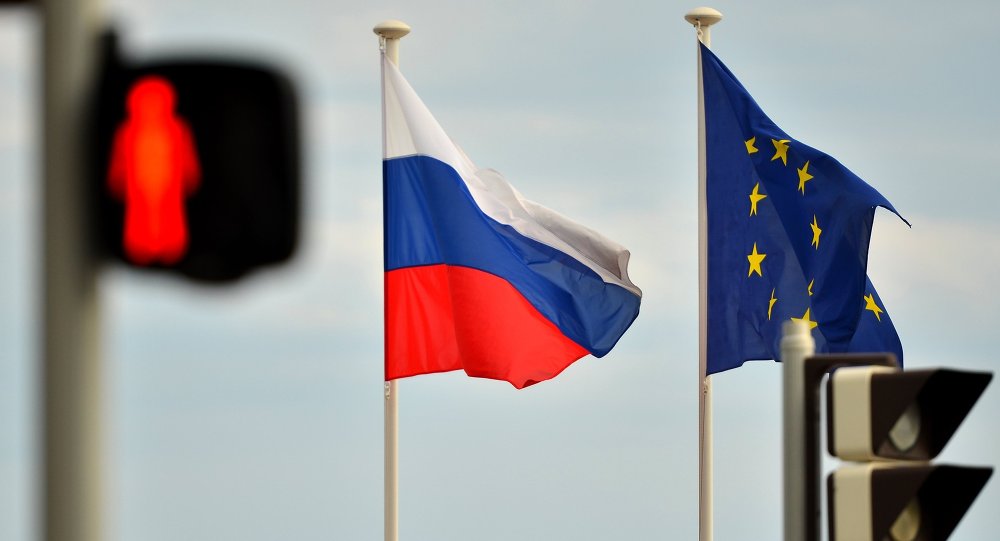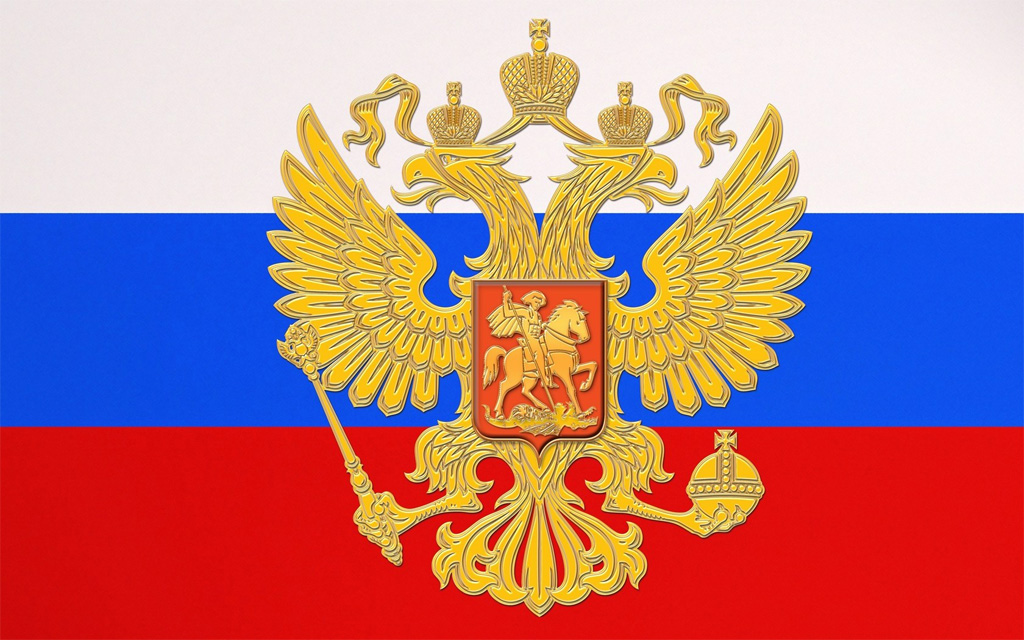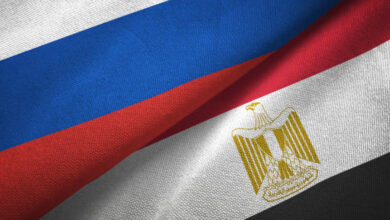RUSSIA & THE WEST ..The long path toward compatibility

The return of Russia is undoubtedly one of the major dynamics of the twenty-first century. The extraordinary revolution and the active diplomacy in Russia will cause a real change in the factual data of the international politics. The fall of communism is an exceptional event at the level of the structural stability of the global system. This event led a number of active international actors into encountering a big trouble in accommodating the new methodological facts and reconsidering their foreign policy. Meanwhile, the strategic problem that stood up to the political elite in Russia lies in finding out how to overcome post-imperial syndrome, especially in the light of the firm belief that the loss of the empire might not have been the end of the story or the end of history, as promoted by the west through ‘Fukuyama’ outlines. These trendscame under leader Vladimir Putin’s agenda when he handed over the reins of power in Russia.
The most striking point in Russia ruled by Putin is the fact that Russia does not count itself defeated in the Cold War which means that its retreat in the international standing is nothing more than a temporary retreat as a response to emergency conditions. Therefore, it would be inappropriate to surrender to this retract which would stimulate the appetite of the international forces to monopolize the top of the global glory. Nothing can de facto oblige the Russians to step aside and watch passively while new rules for world domination are being drafted. This would also providethe political elite in Kremlin with an absolute confidence that Russia couldn’t but be a superpower because it, simply, occupies a unique position in the global geopolitical structure. Therefore, it will be robust enough to handle an active role in the management of future world affairs.
This is precisely what irritates the West and the US. Russia does not recognize the realitiessince the fall of Berlin Wall, and it pays no attention to the post-conflict international determinants. Despite the demise of a number of illusions lingered in the Russian decision makers’ mentality, some people in Russia are still approaching the international politics from a classical perspective. This approach is not solely adopted by the Russians, but it is also adopted by the Americans and Europeans. This stimulates the memory to think using Cold War mentality.
One of the most significant variables in the twenty-first century is the breadth of the actors’ interdependence in the international system. This doesn’t negate the principle of competition as a major driving force in the international affairs, dictated by a number of adverse or mutual interests among these forces as well as the aggravation of the imbalances in the international system due to the US unilateral procedures. These procedures often involve some negativerepercussionspresented by a grave violation to the international law which gives Russia a golden chance to appear as having more positive and moderate policies in the international affairs. Most importantly, Moscow endeavored to take advantage of the factual accumulations resulted from the US radical policies in the worldwhich left the US policy unsolicited.
Even though Russia has relinquished communism as a global ideology and accepted capitalism for the global economy, it is, from a geopolitical point of view, still striving for its rightful position on the international standing. In this regard,the question of the mechanism by which Russia define its global role in the light of its increasing power and the divergence of interest beyond its territorial boundaries might be raised. It is obvious that Russia managed to come out of the geopolitical chrysalis after the collapse of Soviet Union and adopted a new track towards redefining its role within the inclination of the new generation in Kremlin. This tendency are directed towards adopting more nationalistic, self-actualizing, and less cooperative policies with the West in line with the pragmatic considerations in the light of realpolitik principle. The Russian political elite is encouraged by the overwhelming sense of disappointment from the United States and the European countries which internationally sought to humiliate, marginalize, and isolate Russia.
Broadly speaking, we can say that Russian-western relations are still haunted bychallenges and contradictions because of the complex international political situation which provide the international forces with an adequate strategic warning. Conflicts, in fact, becomes intractable, especially in the light of role conflicts and the absence of real guarantees for concordance and conformity in policies. Russia is taking advantage of its growing influence to reshape the foundations and institutions of the international system to better serve its interests. Meanwhile, other countries, whose dominance are declining, see Russia as a representation forgrowing security threats. This trend led to the emergence of a permanent security dilemma in the international policy.
The accelerated-paced strategic change in the post-Cold War era produced a fair share of confusion in the strategic conditions. Globalizations also becomes a source of concern in the departments of Russia policymaking as the West did not take into consideration any political or legal obligations for the management of the new phase. Whereas, ‘partnership’ with Russia was practically less compatible than thetheoretical framework.
In the awake of the crisis in Georgia, Russia felt the ecstasy of victory for its foreign affairs as it managed to bring about a change in the regional balance of power. Moreover, Moscow followed more stringent and determined approach in challenging the Western policies in order to rectify the imbalance with the United States into an equivalent relation between two rivals or two partners on equal foot in a multi-polar world. This relation roused the enthusiasm of the Russians to redefine the Russian relations with the rest of the world.
According to the Russian political leaders and Russian strategy experts, the emergence of a complex multi-polar security environment in the world will lead to grant Moscow a renewed opportunities to achieve the goals of its foreign policies. Meanwhile, the focus of the Russian diplomacy is placed over achieving the greatest share of the strategic influence through a mixture of realpolitik and balance of power principle, more independence in the Russian decision, and causing further political and economic development in the country.
On the contrary, the west turned a blind eye to the requirements of the Russian strategy of the post-Cold War. Alternatively, the United States restricted the Russian movement in the Central and Eastern Europe which were under Moscow control during the soviet era. In addition, the west inclined to monopolize the multilateral remedies on the regional security issues in the Eurasian area. This issue is a harbinger of danger in relation to the geopolitical balance which is taken into Russian strategic consideration. This reason is enough to call for pessimism because it revealsthe red lines of the hot Russian-Western relations. Each party have an interest in exhausting the other side. That leads one party to place some pressure over the other party’s weaknesses. Likewise, we find that the West places pressure over Russia in Eastern Europe and Central Asia. At the same time, Moscow seeks to hamper the Western endeavors. Finally, this is the central point of the strategic vision of both parties.
In fact, the breach of the Russian-Western diplomatic relations in that manner is a serious turning point in the international system. This strategy aroused the level of strategic confusion in the international policy, and pushed the Russians to resort to coercive diplomacy, as in the Baltics and the Central Asian states, in addition to direct military action, as in Georgia and Crimea, and the excruciating crisis in Ukraine.
One of the greatest historical achievements of a multipolar era is that Russia is still possessing a real opportunity to become one of the major driving forces in security management, and brining about stability in Europe. Wherefore, Moscow did not interpret NATO’s special initiatives positively, as hoped by the Westerners and the Americans. The Russians have a firm conviction that the issues of NATO’s contribution in guaranteeing European security and continental unification project are still under discussion, and will remain so.
As for Russia, there is a clear equation i.e. NATO is a product for a time of conflicts, and it is a means of confrontation and blackmailing, which are now outdated methods. Dwelling in the past is still the most suitable way to divert the attention from the present. However, if a drift in politics within the Russian, or American, or European narrow strategic accounts took place, it would have the shape of a rigid apostasy. However, it does not necessarily means that it will end up by a new cold war, because it is rejected by everybody. From a pure analytical perspective, we can’t perceive the current occurrences as a cold war because none of the international forces is capable to undertake the burdens of a cold war, and nobody is willing to act the way accustomed during the times of conflict.
Nevertheless, we can’t deny the clashes between Russia and the West on many fronts simultaneously. This situation is not likely to change in the short term, but things may take more varied levels because the clash is based on legendsof the past, and is dictated by adverse objectives and ideas. This makes the management of crisis and conflict avoidance even tougher issues. The last concept is represented by concordance troubles between the West and Russia over the most urgent issues for the European security, including the Ukrainian crisis, and for the regional security, as in Syria crisis. In both cases, the Russians and the West are still striving to find a common ground. Apparently, there is no point in trying.
The conflicts in East Europe, Ukraine, and the military involvement in Syria share a common dominator. That is to say, Russia wants to return to the historical system. We can therefore say that Russia is now the most critical variable, hard to understand, and influential over the future security environments and Western strategies.We also should never underestimate the indicators of a latent distrust in the West in relation to the optimistic assessment of the future possibilities for Russia and suspicion over US stamina on the long run. However, when suspicion develops into a usual behavior for the political elite of both parties, it will be a substantial danger threatening the path of consensus policy.




